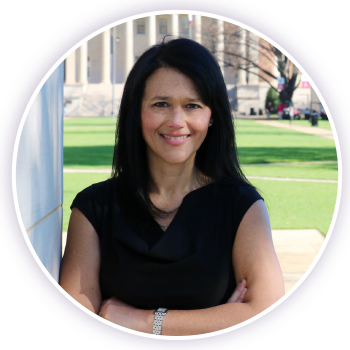Alumni Q&A: Dr. Jennifer Jolly
Jennifer Jolly, MSEd ’94, PhD ’04, an Associate Professor in the University of Alabama's Department of Special Education and Multiple Abilities, is an expert in gifted education.
How did you develop an interest in gifted and talented education?
After earning an undergraduate degree and teacher certification in California, I came to Texas as a secondary social studies teacher, and that was an issue. I actually had a high school principal tell me those jobs are for baseball and football coaches. Another one recommended I get elementary certification, so I did.
I happened to get a job teaching gifted kids, and I loved it. There was no curriculum at the time, so I was developing a lot on my own and trying to link more in-depth activities to what the kids were doing in the classroom.
After earning my master’s and a few years of teaching, I ran into Dr. [Susan] Johnsen, and she had just started the PhD program, and it was truly the best thing for me.
What lessons from classroom teaching stayed with you?
The idea of individual differences — that’s what our field was built on. Kids have strength in one area and struggle in another, and I see the same thing in my graduate students, so I try not to treat them as a homogenous group. Everybody is an individual.
Here, our graduate classes are hybrid and moving to online. So I’m also building curriculum again, making sure the content is engaging and that we have ways to connect online and keep the discussion going.
You spent three years teaching in Australia. What was that like?
I taught at the University of New South Wales, which has a long tradition of gifted education, and I got to work with their Gifted Education Research and Resource Information Center and coordinate a world conference. They were using a lot of North American research and applying it, which was not optimal, so I enjoyed creating new research there and continue that line of research.
What do classroom teachers need to know about gifted students?
Gifted students spend the majority of their time with their regular teacher so it’s important for teachers to consider those individual differences. And you don’t have to do it all by yourself; reach out to the gifted resource teacher on campus or at the district.
And read journals like Gifted Child Today. If gifted children are not challenged early on, they can lose the love of learning and become complacent. Then when they do face a challenge down the road, they become disruptive.
How does your experience at Baylor stack up to other institutions you’ve been a part of?
Baylor is an amazing place. Anyone lucky enough to go there for education comes out a different and better person. I went back for my PhD because I had such a good experience in the master’s program.
Dr. Johnsen continues to be a mentor to this day; letting her down would be as hard as letting down my own mom.
Photo by Vasiliki Evangelou, College of Education, University of Alabama
